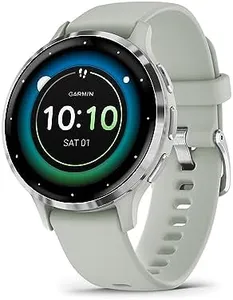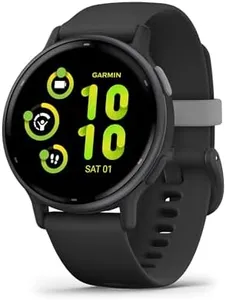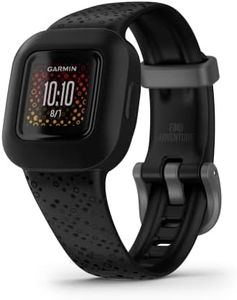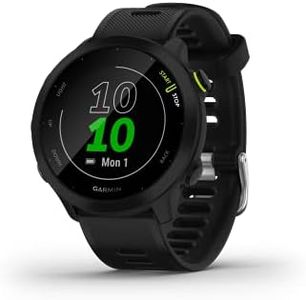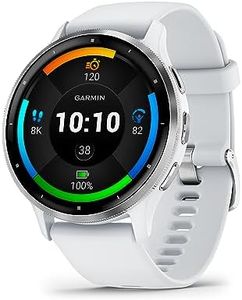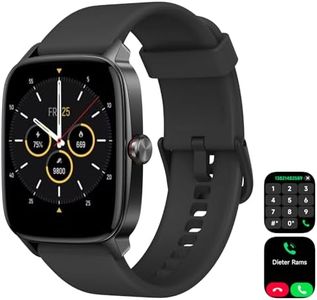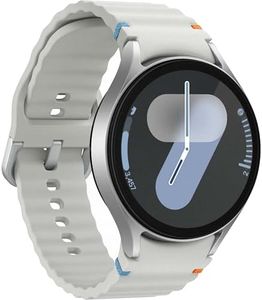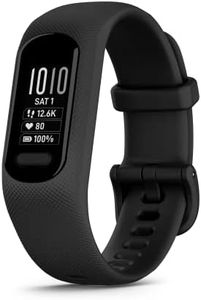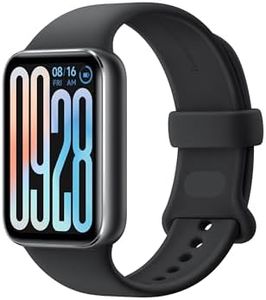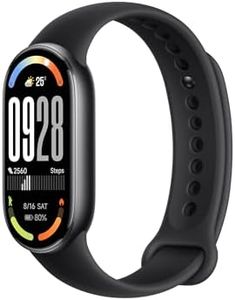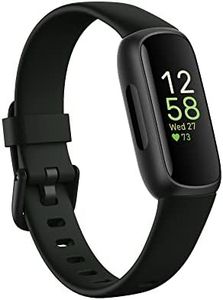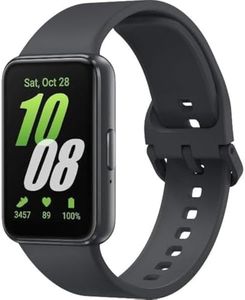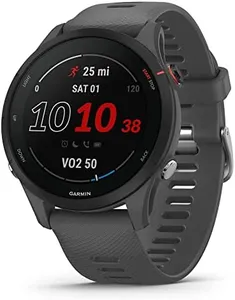We Use CookiesWe use cookies to enhance the security, performance,
functionality and for analytical and promotional activities. By continuing to browse this site you
are agreeing to our privacy policy
10 Best Fitness Trackers
From leading brands and best sellers available on the web.By clicking on a link to a third party's website, log data is shared with that third party.
Buying Guide for the Best Fitness Trackers
Choosing the right fitness tracker can make a big difference in how effectively you track and achieve your health goals. With so many options available, it's helpful to first think about how and why you want to use the device. Are you a casual walker wanting to count steps, a swimmer keeping tabs on laps, or perhaps someone training for a marathon? Different trackers offer various features, so it's smart to match what they offer with what you actually need. Also, consider how comfortable the device feels, how easy it is to use, and whether it works well with your smartphone or computer.Activity TrackingActivity tracking refers to the range of activities the fitness tracker can monitor, such as steps, distance, calories burned, and specific sports or exercises. Some trackers only track basic movements, while others recognize running, cycling, swimming, and more. Think about the exercises you do regularly—if you mostly walk or jog, a simple tracker will do. If you want to track more types of activities, look for broader activity support.
Heart Rate MonitoringHeart rate monitoring allows the tracker to measure your pulse throughout the day and during workouts. This helps you gauge exercise intensity and overall health. Some devices provide continuous monitoring, while others measure only during certain activities. For general wellness, occasional monitoring might suffice. For focused training, look for continuous and accurate heart rate tracking.
Sleep TrackingSleep tracking means the device can monitor your sleep patterns, giving you insights into your sleep quality and duration. Basic models might just track sleep time, while advanced ones detail different sleep stages. If understanding your sleep is important to you—whether to improve rest or spot issues—choose a tracker that offers detailed sleep analysis.
Battery LifeBattery life indicates how long the fitness tracker can run before needing a recharge. Some last only a few days, while others can go a week or more. If you prefer charging less frequently, look for a longer battery life. Advanced features like always-on displays or continuous monitoring typically use more power, so consider how much you'll use these features.
Water ResistanceWater resistance tells you how well the device holds up against sweat, rain, and water. Basic trackers can handle splashes but not full submersion, while others are designed for swimming. If you want to wear your tracker in the shower or for swimming, choose one with strong water resistance—often rated at 5 ATM or above.
CompatibilityCompatibility means whether the fitness tracker can connect and share data with your smartphone or computer. Most need a companion app. Make sure the tracker works with your device's operating system (like Android or iOS). This helps you easily access your health data and receive notifications.
DisplayThe display is how information shows up on your tracker. Some have simple LED lights or icons, while others use full-color touchscreens. Simpler displays use less battery and are easy to read at a glance, while larger screens can show more information but may be bulkier. Think about how much information you want visible on your wrist and whether you prefer buttons or touch controls.
Comfort and StyleComfort and style refer to how the fitness tracker feels and looks on your wrist. Features like band material, weight, and size can make a difference, especially if you'll wear it all day or night. If you have sensitive skin or plan to wear the tracker everywhere, look for one with soft, hypoallergenic bands and a design that fits your taste.
